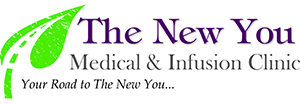Food Allergy Treatment in Irving, TX

Understanding Food Allergies
Food allergies are an immune response to triggers found in the food we eat. Food allergies can be life-threatening, as exposure to triggers typically occurs in the mouth and throat. In some cases, food allergies may trigger anaphylactic shock and require immediate assistance. Food allergies may also cause less serious symptoms such as hives or temporary digestive problems. Food allergies are most common amongst children and those with a family history of food allergies.
Food Intolerance / Sensitivity
Food allergies and food intolerance are not one in the same. Food intolerance means you may be able to eat small amounts of a certain food or ingredient. However, symptoms such as nausea, diarrhea, and vomiting may occur after having eaten too much of the food or after eating an ingredient prepared in a certain way. Food sensitivity typically refers to the gray areas between allergy and intolerance (and in some cases, between intolerance and plain old bad cooking).
Two of the most well-known sensitivities are sulfite sensitivity and MSG sensitivity. Sulfites are common ingredients in processed food used to add flavor and as a preservative. Sulfite sensitivity refers to symptoms triggered by exposure to these sulfites, often in ingredients named “sulfur dioxide” “potassium bisulfite” or “sodium bisulfite”. It is rare for fresh food to contain these ingredients, but it is always helpful to check products for potential triggers. Monosodium glutamate (or MSG) is a flavor enhancing food additive which has been the subject of much debate over the years. There is no clear answer to whether the symptoms of MSG classify as an allergy or intolerance, therefore “sensitivity” has been used as a more general label. MSG has been known to trigger common symptoms of food allergies in large doses.
Common Food Allergies
- Eggs
- Fish
- Peanuts
- Tree Nuts
- Shellfish
- Poultry
- Wheat
Symptoms of Food Allergies
- Abdominal pain
- Diarrhea
- Dizziness
- Vomiting
- Swelling of the mouth, lips, face, throat, and other affected areas
- Itching and tingling in affected areas
- Constricted airways
- Rapid pulse
- Difficulty breathing
Treating Food Allergies
Food allergies may cause contact dermatitis or eczema . This is often treated with corticosteroids and antihistamines. Food allergies may also disrupt the stomach and digestive system. However, those symptoms are typically only temporary and rarely require medical attention. Anaphylaxis is by far the most life-threatening symptom of food allergies. In this case a doctor may use epinephrine to help reduce symptoms and open the airways.
Pollen-Food Allergy Syndrome
Also known as oral allergy syndrome (OAS) this syndrome may cause symptoms of hay fever and, in severe cases, anaphylaxis. It occurs when the immune system confuses proteins found in food such as apples or celery for the proteins which trigger hay fever . This triggers what is known as cross-reactivity. Talk to your doctor about which foods may trigger symptoms of pollen-food allergy syndrome for you.
Living With Food Allergies
If you have an allergic reaction to a food or ingredient, it is important to read nutrition labels to make sure there are no potential triggers. It may also be helpful to carry a list of triggers or acceptable products to show to food service staff. Your doctor may recommend that you carry an autoinjector of epinephrine or adrenaline in case you go into anaphylactic shock. It may also help to wear a medical alert bracelet or necklace to alert first responders of potential triggers if you are unable to communicate.
Request more information about food allergies today. Call (817) 203-2760 or contact Ms. Jessica Stangenwald online.
The New You Medical & Infusion Clinic
Address
100 Grapevine HwyHurst, TX 76054
(817) 203-2760
https://www.newyoumedclinic.com/
Hours
Mon:
10:00 am - 6:00 pm
Tue:
10:00 am - 6:00 pm
Wed:
10:00 am - 6:00 pm
Thu:
10:00 am - 6:00 pm
Fri:
Closed
Sat:
Closed
Sun:
Closed


